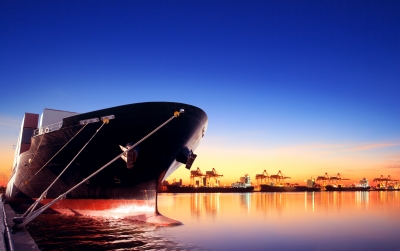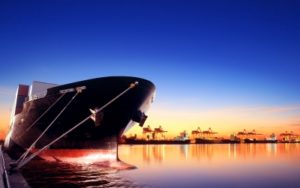Most members of the Philippine Liner Shipping Association (PLSA) will impose a recovery charge following imposition of the excise tax on fuel under the new Tax Reform for Inclusion and Acceleration (TRAIN) Law. This development will lead to higher shipping rates.
In a letter to Maritime Industry Authority (Marina) director for domestic shipping services Sonia Malaluan, the group said most of its members “will be constrained to impose a cost recovery mechanism, Excise Tax Recovery Charge (ETRC)…” because of the newly signed legislation.
Since the domestic shipping sector is deregulated, ship operators may impose a fuel surcharge or a freight hike to counter higher operating costs.
PLSA said the ETRC will be computed per twenty-foot equivalent unit (TEU) based on the actual excise tax added per liter of fuel and oil multiplied by the individual member lines’ actual fuel consumption over its laden TEU-volume carried.
PLSA members include 2Go; Gothong Southern Shipping Lines, Inc.; Lorenzo Shipping Corporation; Meridian Cargo Forwarders, Inc.; Moreta Shipping Lines, Inc.; NMC Container Lines, Inc.; Oceanic Container Lines, Inc.; Philippine Span Asia Carriers Corporation; and Solid Shipping Lines Corporation.
PLSA noted that the Department of Energy has stated that the additional excise tax will be imposed once old fuel stocks are consumed and may be charged as P2.50 per liter of bunker, diesel, and all other similar fuel oils, and P3.50 per liter of lube oil.
Republic Act No. 10963 or TRAIN, which was signed by President Rodrigo Duterte on December 19, 2017, amends several sections of the National Internal Revenue Code of 1997, as amended.
Under TRAIN, the first package under the comprehensive tax reform program of the government, a staggered increase in diesel excise tax, including bunker fuel used by shipping lines, will be imposed, from the previous zero to P2.50 per liter in 2018, to P4.50 in 2019, and to P6 in 2020.
PLSA said its members will also comply with implementing guidelines on the imposition of any upward adjustment provided under Rule IV of the 2014 amendments to the revised rules and regulations implementing Republic Act (RA) No. 9295, or the Domestic Shipping Act of 2004.
The group said its members will also notify shippers and other affected parties or post notices in all conspicuous places two weeks prior to effectivity of adjustments.
Atty. Pedro Aguilar, executive director of Philippine Inter-island Shipping Association (PISA) of which PLSA is a member, earlier told PortCalls that stakeholders should expect increases in shipping rates since the approved excise tax on bunker fuel is “substantial.” He said service providers will not be able to absorb the increase and will eventually pass it on to their customers.
He noted that fuel accounts for 40% to 50% of a ship’s operational costs. A 2015 calculation by PLSA, however, puts this figure at a lower but still considerable rate of 30%.
Aguilar said any addition to the price of fuel will jack up operational costs for vessels, which use bunker fuel for their engine and diesel for generator sets.
Other sectors to follow suit
Aside from shipping, other players in the cargo transport industry said the new and higher excise tax on petroleum products will inflate operational costs that will eventually be passed on to stakeholders and consumers.
Philippine Chamber of Arrastre and Stevedoring Operators president Benjamin Cecilio earlier said the increase in fuel excise tax will mean additional operating costs for arrastre and cargo-handling operators since “operations use substantial amount of fuel to move their equipment.”
Cost drivers, including fuel costs, are one of the grounds cited by arrastre and cargo-handling operators when asking the Philippine Ports Authority (PPA) for a rate increase.
Cecilio noted, however, that an immediate increase may not happen since the PPA takes time to approve any proposed rate increase.
Trucking rates may also increase due to the approved higher excise tax on diesel, which is used by truckers. Inland Haulers and Truckers Association president Teodorico Gervacio said the additional cost will surely trigger an increase in trucking rates, the amount to depend on market forces.
Earlier, Confederation of Truckers Association of the Philippines vice president for external affairs Pepito Dino noted that trucking accounts for 35% to 40% of overall costs of manufacturers and producers. – Roumina Pablo
Image courtesy of khunaspix at FreeDigitalPhotos.net






